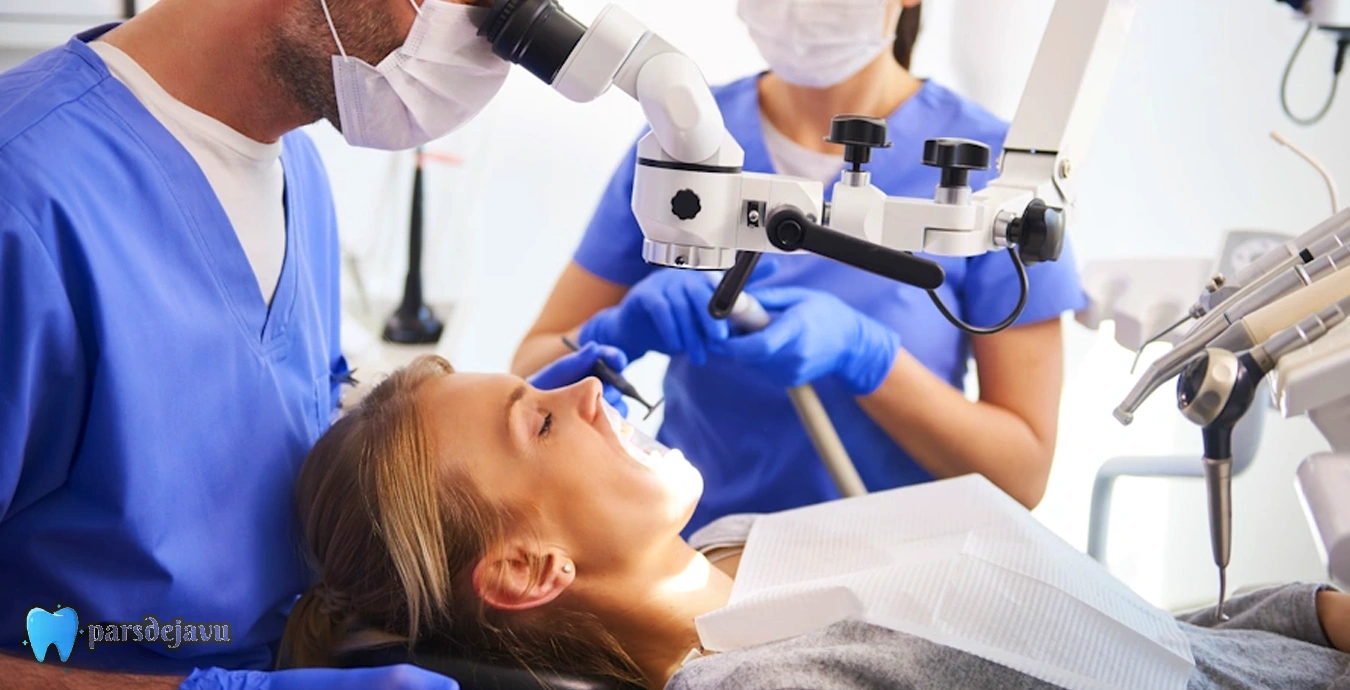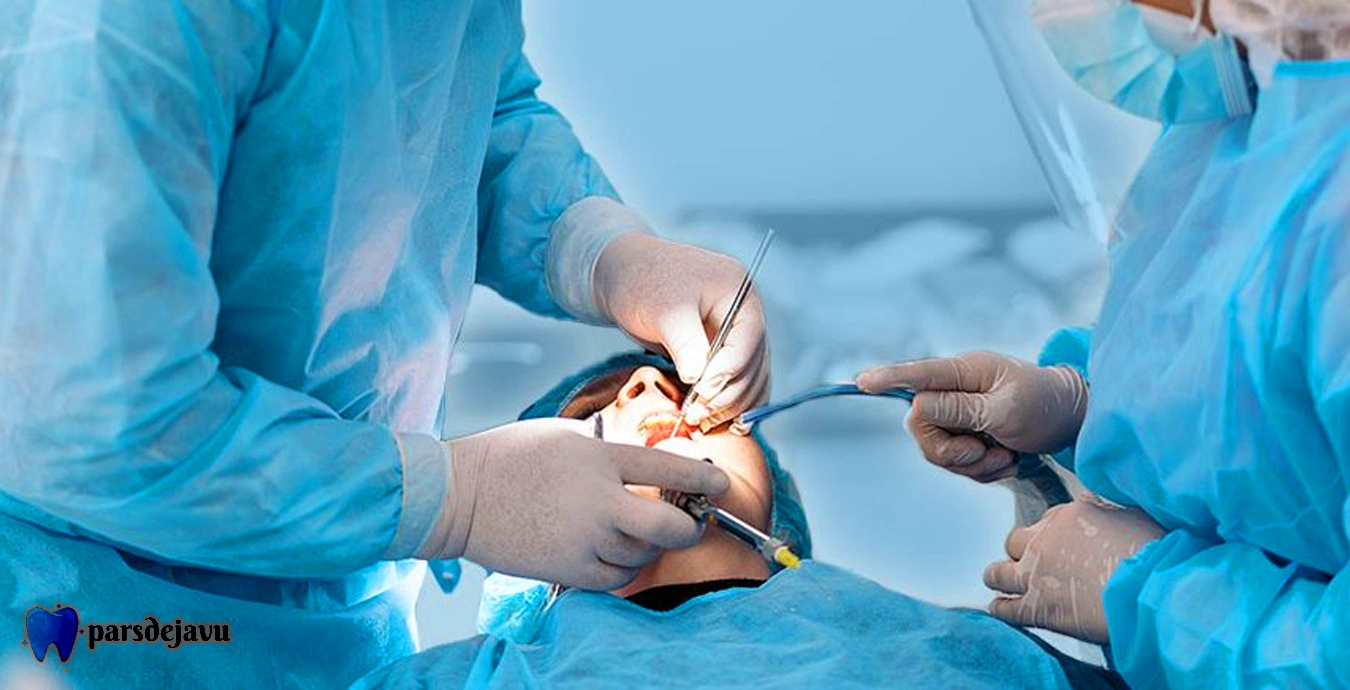If you live in Tehran and are dealing with jaw abnormalities or structural problems in the upper or lower jaw, having access to a reputable jaw surgery center with a specialized team and modern equipment is crucial. Fortunately, many facial and jaw surgery centers operate in Tehran, but only a few offer comprehensive, specialized care without the need for external referrals.
Parsi Dejavu Dental Clinic, located in Zafaraniyeh, is one of the rare centers that provide experienced jaw and facial surgeons, state-of-the-art technology, and complete services—from consultation to surgery and follow-up. Below, you’ll find the full details of jaw surgery services and procedures in Tehran.
Book Appointment
"*" indicates required fields
If you live in Tehran and are dealing with jaw abnormalities or structural problems in the upper or lower jaw, having access to a reputable jaw surgery center with a specialized team and modern equipment is crucial. Fortunately, many facial and jaw surgery centers operate in Tehran, but only a few offer comprehensive, specialized care without the need for external referrals.
Parsi Dejavu Dental Clinic, located in Zafaraniyeh, is one of the rare centers that provide experienced jaw and facial surgeons, state-of-the-art technology, and complete services—from consultation to surgery and follow-up. Below, you’ll find the full details of jaw surgery services and procedures in Tehran.

What Is Jaw (Orthognathic) Surgery and Why Is It Needed?
Jaw surgery (orthognathic) is a highly specialized branch of dentistry and maxillofacial surgery aimed at correcting structural and functional problems of the upper jaw (maxilla) and lower jaw (mandible). This surgery includes a variety of procedures intended to correct jaw misalignment, improve jaw function, enhance facial aesthetics, and improve patients’ quality of life. It is typically performed in conjunction with orthodontic treatment.
Who Is a Candidate for Jaw Surgery?
Candidates may include those with:
✔ Severely protruding or receding jaws
✔ Vertical jaw misalignmentا
✔ Jaw deviation to one side
✔ Difficulty chewing or incomplete tooth closure (malocclusion)
✔ Speech difficulties due to jaw irregularities
✔ Gummy smiles or excessive tooth display
✔ Chronic mouth breathing, especially during sleep
✔ Jaw joint pain or sounds (TMJ disorders)
Reasons for Jaw Surgery
Improving chewing function: Jaw misalignment can hinder proper tooth contact and chewing.
✔ Enhancing facial aesthetics: Achieving facial balance and symmetry is often a primary motive.
✔ Improving speech: Jaw repositioning can significantly improve articulation.
✔ Treating sleep disorders: Corrections to the lower jaw can reduce sleep apnea and similar issues.
How Jaw Surgery Differs from Orthodontics
Orthodontics focuses on aligning teeth, while jaw surgery addresses skeletal bone structure. In many cases, braces alone are insufficient; stable, effective results require bone correction.
Jaw Surgery Process in Tehran
The stages of jaw surgery are as follows:
1. Initial Consultation
Assessment by both orthodontist and maxillofacial surgeon, with clinical exam, photos, and X-rays.
2. Pre-Surgical Orthodontics
Teeth are aligned and prepared—typically 6 to 18 months before surgery.
3. Digital Surgical Planning
Advanced software is used to simulate surgery, plan precise cuts and jaw movements.
4. Surgery
Performed under general anesthesia in a hospital. Can involve upper jaw, lower jaw, or both.
5. Post-Operative Care
Follow a soft diet and avoid strenuous activity. Initial recovery takes 2–4 weeks; bone healing completes in 6–12 weeks. Regular follow-up with surgeon and orthodontist is essential.

Types of Jaw Surgery
Types of jaw surgery include:
Maxillary (Upper Jaw) Surgery:
Corrects jaw position, tooth exposure, gummy smile, and facial imbalances.
Mandibular (Lower Jaw) Surgery:
Used when the lower jaw is significantly forward or backward.
Bimaxillary Surgery:
Involves both jaws for more precise alignment and facial balance.
Genioplasty (Chin Surgery):
Adjusts chin position and size, often combined with jaw surgery for harmony.
Multidisciplinary Team Role
At Parsi Dejavu, a team of maxillofacial surgeons, orthodontists, radiologists, and anesthesiologists works closely to ensure safe, successful outcomes.
Possible Complications
✔ Facial swelling and bruising
✔ Temporary numbness in lips or cheeks
✔ Rare need for corrective or revision surgery
✔ Minor risks: bleeding, infection, or delayed bone healing
Post-Surgical Care
✔ Soft diet for several weeks
✔ Oral hygiene: soft brushes, antibacterial rinses, and regular checkups
✔ Plenty of rest and avoiding strenuous activities
✔ Follow-up appointments to monitor adjustment and orthodontic progress
Cost of Jaw Surgery in Tehran
Costs vary depending on complexity, procedure type (one jaw or two), orthodontic treatment, and clinic rates. At Pars Dejavu, detailed cost planning is provided after evaluation, and installment plans are available to support patients.
Why Choose Pars Dejavu Clinic?
✔ Specialist Team: Maxillofacial surgeon, orthodontist, and anesthesiologist in one center
✔ Modern Equipment: 3D scan, digital imaging, advanced anesthesia systems
✔ Professional Environment: Relaxing, state-of-the-art facility in Zafaraniyeh
✔ High Patient Satisfaction: Hundreds of successful cases across Tehran and Iran
✔ Comprehensive Support: Pre- and post-op care, dietary guidance, regular follow-up
✔ High Success Rates: Demonstrated excellent surgical outcomes
Parsi Dejavu is considered one of Tehran’s top dental surgery clinics!
If you or a loved one are facing jaw abnormalities, contact Parsi DejaVu Clinic today. We will thoroughly assess the condition of your jaw and teeth and recommend the best treatment option.
FAQs
Can jaw surgery be done at any age?
No—ideally performed after skeletal growth ends, typically between ages 18–25. However, exceptions may be made based on clinical evaluation.
Will jaw surgery change facial appearance?
Yes—jaw surgery often enhances facial aesthetics, aligning features more harmoniously.
Are results permanent?
Yes—results are typically long-lasting. In some cases, rhinoplasty may be performed simultaneously for improved facial harmony.
When can I resume daily life after surgery?
Most patients return to normal activities within 2–3 weeks, following medical advice.
How long after surgery can one return to work and normal life?
Most patients can return to daily activities within two to three weeks, provided they follow the doctor’s instructions.
